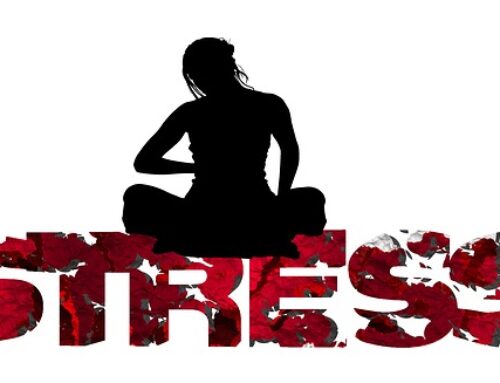Table of Contents
Working while you’re mentally distressed is particularly challenging. Here are some tips from Sharda Hospital in dealing with mental health at work.
Do you dread going to the office? Do you feel cornered, or singled out? Do you find it difficult to sustain in your office environment? Do not worry, you are not alone!
It is very important for people with mental illness to come out of their mental closet before it chokes them. Instead of confining yourself in solitary darkness, it is better to speak out about your fears. Making it public has helped many sufferers around the globe.
One such story is of the former sufferer Jennifer Marshall from Ashburn, Va.
She joined a growing community of people with mental illness who have chosen to bring themselves out. Marshall describes a surge of strength as she shared her story. “It’s human connection,” she said. “When you find someone who has been able to overcome something that you’re struggling with, it’s really powerful.” Many times, even stellar performance at workplace and respect of society cannot drive away the innate fear. This causes depression.
Recently, few very successful people have committed suicides including Robin Williams, Mindy McCready, Kurt Cobain, Tom Scott, Jovan Belcher.
Fear of Work- Ergophobia
Deep and persistent fear of work is called Ergophobia. Ergophobia is a part of social anxiety disorder and other mental issues. The individuals suffering from it are afraid to seek employment for the fear of being yelled at by superiors, or, in general, due to performance or social anxiety. In extreme cases, patients refuse to report to the workplace and are thus demoted or terminated.
This is a vicious circle that further enhances his fear of work. Other complications like strained relationships, divorce, piling debt, neglect of personal health, hygiene, belongings etc. exacerbate the phobia. Fear to be unaccepted in the society is a very strong reaction, and this goads us to perform well.
A very famous quote by Charles Burkowski aptly sums up the situation. “How in the hell could a man enjoy being awakened at 8:30 a.m. by an alarm clock, leap out of bed, dress, force-feed, shit, piss, brush teeth and hair, and fight traffic to get to a place where essentially you made lots of money for somebody else and were asked to be grateful for the opportunity to do so?”
Thus, it is very important to drive away that fear.
Former Johns Hopkins professor and CEO of Qntfy, Glen Coppersmith’s Twitter analysis shows that since 2014, hundreds of people a day have tweeted about their diagnoses about mental illness.
Mental Health is considered a Stigma
The most cited definition of stigma is that of Goffman an “attribute that is deeply discrediting” and that reduces the bearer “from a whole and usual person to a tainted, discounted one”. Stigma is widely manifested through bias, distrust, fear, and embarrassment and stereotyping. Fear of stigma compels people to shun public life, work, and socializing. Employers likewise, avoid employing them wrecking financial burden on them as well.
‘Scary’, ‘unpredictable’ or ‘weak’ are some stereotypical adjectives to stigmatize people. These fears of being judged or stigmatized compel sufferers to withdraw themselves into their shell. They fear coming ‘out’ to friends or family because of shame or perceived failure to cope. Many times people fear that they will not be seen as ‘equal’ to others, and that their life chances will be limited. This is an alarming situation with a chronic vicious circle. If you can overcome your fears and anxieties in a meticulous way of living your life to its optimum potential, you are a lucky person. We are part of the society that has not fully comprehended mental illness and fear.
Tips for Fighting With Fear
If you are feeling helpless and your work productivity is being affected, you need corrective measures to tide over your mental disorder. Below are some of the tips that will help you conquer your fears and boost your performance at work.
1. Take time out
Calmness has a greater effect on the nerves. If fear or anxiety has gripped you, it is important to calm down. Keep yourself distracted for some time and as you get normalized, get down working again. Sipping tea or coffee break is also a good idea. Don’t linger on work with a bad mood, as your work will hamper. Watching some interesting stuff on mobile can be helpful in dispelling fearful thoughts.
2. Breathe through panic
Are you getting a faster heartbeat or sweating palms? How often have you seen people sighing? This is a very natural way of calming your nerves when panicky. Breathing through your panic moments is a good exercise, as you can literally feel the fear away. Don’t fight with your emotions, rather breathe through them
3. Face your fears
This is a timeless classic advice passed down through generations. Don’t try to evade fearful situations. Instead, confront your fear. If escalators terrify you, take it one another time instead of the lift. Slowly, you would have won over your fear. As you get accustomed to facing your fears, you are in a sturdier frame of mind to deal with all kinds of situations.
4. Imagine the worst
The pessimistic thought of losing someone dear or accident gnaws at your inner strength. “God, how will I ever get over it” is a common refrain. It is always said that fearing the fear is the worst situation. Instead, make up your mind for the worst, and then put up a brave face. The fear will lose its enormity in some time. It will be conquerable. Make a mental calculation of your material and emotional loss, this will be helpful in your mental preparedness as well.
5. Look at the evidence
Sometimes, our fears are mere perceptions and do not exist. So, once in a while trying to look for reasons to be fearful. Maybe it is just a phobia worth getting rid of. When you find yourself concocting imaginary situations, it could be a classic case of low self-esteem biting into your fortitude. Once you start reasoning, you’ll realise that you were unnecessarily worked up
6. Shun perfection
Perfect lives are imaginary. However, rich or powerful a person may look like, there can be many imperfections that you are not aware of. So, striving for perfect people or situation in life is a mirage. Don’t lust for it! Stress, setbacks and bad days will always happen. So do not strive for a perfect life. The fear itself will be thus, itself nipped in the bud7.
7. Visualize a happy place
“Make the people you love a top priority, always” that’s what Marc Chernoff said on prioritizing your life for happiness. Memories and visuals of happy moments are always cherished. So when fear grips you, let those happy memories relax your ruffled nerves. You will feel calmer and more relaxed. Visualizing yourself in a better situation is a positive thought that always works.
8. Talk about your fear
Hiding your fears deep within yourself is punishing oneself cruelly. It is worse than death. Better talk about them. If that is not possible, pen down your fearful thoughts and publish it in a blog or social media post. Reactions from friends and even unknowns would give you unscalable confidence. Try this out, it is very helpful.
9. Go to basics
How often have you heard from the counselor to go back to your routine life after a major upheaval in life like the death of a loved one? Following the routine lifestyle is better at calming your nerves than turning towards, drugs, alcohol or even medicines. The drudgery of mundane activities takes away your mind away from the loss or fear. However, if your mental disorder is profound, antidepressants are recommended in most of the cases.
10. Reward yourself
Loving yourself is very important. Psychotherapists always recommend self-compassion. Shower yourself with treats like massage, long drive, a meal out, a book, a DVD, or whatever else catches your fancy. Self-esteem boosts your confidence to deal with every situation. Reward yourself with a generous dose of self-esteem apart from material gifts.
Mental Well-Being is the Most Important
People are conditioned to feel grateful for their job, even at the cost of health or happiness. So, when one is not able to adjust to their workplace, a feeling of guilt builds on, leading to devastating consequences many times. Mental fitness requires a sturdy mind and firm determination to get over the fear. Actively managing your health will challenge your intellect and memory. Your workplace challenges or drudgery can then be channelized to help you recover your confidence. This will finally make you emerge victoriously.
Contributor Bio – The blog is presented by Sharda Hospital. Sharda Hospital is one of the largest super speciality hospitals in Delhi National Capital Region (NCR).
Related:







Leave A Comment